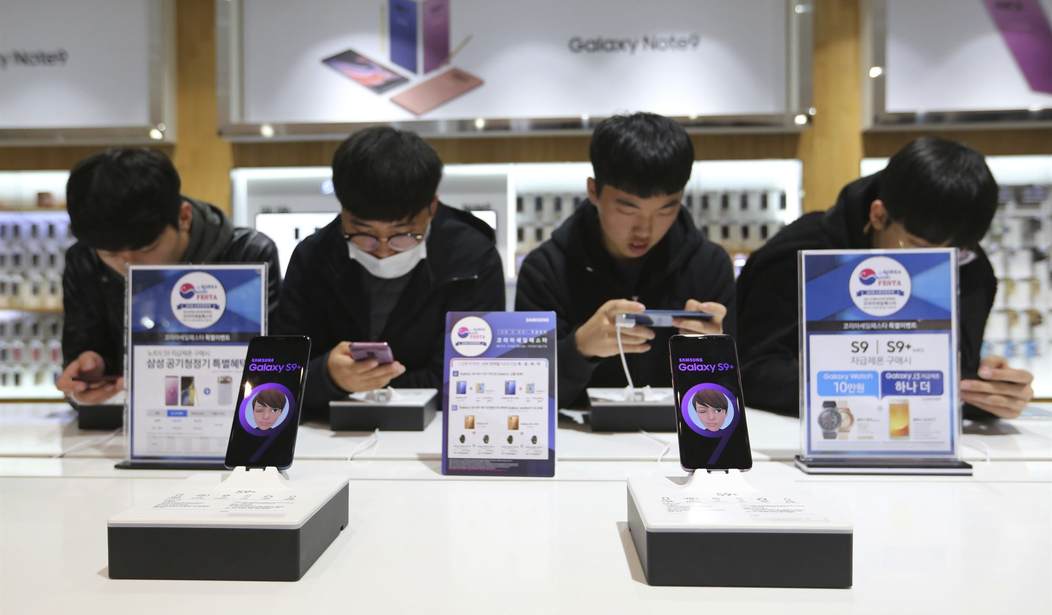Here are a few statistics to alarm you. According to social psychologist Jonathan Haidt writing in The Atlantic, "Rates of depression and anxiety in the United States—fairly stable in the 2000s—rose by more than 50 percent in many studies from 2010 to 2019. The suicide rate rose 48 percent for adolescents ages 10 to 19. For girls ages 10 to 14, it rose 131 percent."
It's not just in the U.S. Across the Western world, we can find similar numbers among pre-adolescents and teens.
"Members of Generation Z (born in and after 1996) are suffering from anxiety, depression, self-harm, and related disorders at levels higher than any other generation for which we have data," writes Haidt.
Loneliness and friendlessness are off the charts for teens. Not surprisingly, this has led to a drop in standardized test scores. This is before the pandemic and the teacher's union-imposed school closures of the 2020s. Again, it's not confined to America.
Accepting statistics is one thing. Identifying the problems that are turning children into pressed, lonely, and less intelligent is an entirely different matter.
As the oldest members of Gen Z reach their late 20s, their troubles are carrying over into adulthood. Young adults are dating less, having less sex, and showing less interest in ever having children than prior generations. They are more likely to live with their parents. They were less likely to get jobs as teens, and managers say they are harder to work with. Many of these trends began with earlier generations, but most of them accelerated with Gen Z.
Surveys show that members of Gen Z are shyer and more risk averse than previous generations, too, and risk aversion may make them less ambitious. In an interview last May, OpenAI co-founder Sam Altman and Stripe co-founder Patrick Collison noted that, for the first time since the 1970s, none of Silicon Valley’s preeminent entrepreneurs are under 30. “Something has really gone wrong,” Altman said. In a famously young industry, he was baffled by the sudden absence of great founders in their 20s.
“Smartphones and social media fundamentally changed the way teens spend their time outside of school,” says Jean Twenge, a psychologist and author of the book “Generations.”
“You take a generation of young people, they’re spending a lot more time in their rooms, alone, not sleeping, not hanging out with their friends in person. That’s a pretty bad formula for mental health,” Twenge adds.
The time that American teens are spending online is rising. The time that kids spend playing has gone down. While we must exercise caution in drawing conclusions, there are some things that social scientists can prove empirically.
Haidt's new book out next week, "The Anxious Generation: How the Great Rewiring of Childhood Is Causing an Epidemic of Mental Illness," advances the theory that kids staring at screens all day is terrible for human development.
A "phone-based" childhood causes "social deprivation, sleep deprivation, attention fragmentation and addiction," Haidt writes.
A "play-based" childhood is essential for developing physical and social skills, like conflict resolution.
"Children learn through play to connect, synchronize, and take turns," the book says. "They enjoy attunement and need enormous quantities of it."
Social media, by contrast, "is mostly asynchronous and performative," Haidt writes. "It inhibits attunement and leaves heavy users starving for social connection."
Haidt is a brilliant man even though I'm not enamored of his profession. But looking at the decline in the mental health of America's youth, the disinterest in almost anything not on their phone, the lack of ambition, the lack of interest in sex, marriage, and child-rearing — all of this points to a catastrophe unless something is done.
Haidt suggests the following:
- No smartphones for kids before high school — give them only flip phones in middle school.
- No social media before age 16.
- Make schools phone-free, by putting devices in phone lockers or Yondr pouches.
- Give kids far more free play and independence, including more and better recess.
I can get behind #4 wholeheartedly. Giving kids more play and independence will make them less obese and happier. Getting the parents to go along is another story.
And try getting those phones away from kids. If they can get illegal drugs, they can get their hands on a phone. The ban on social media is well-meaning but again, impossible to enforce. Criminalizing it won't help either.
A little more parental supervision (without making kids less independent) would be helpful. In the 1990s, many families wouldn't allow computers in a kid's bedroom for the very reason that Haidt mentions. Parents placed the computer in a common area.
That's not possible today. But perhaps being aware of the negative effect that screens have on a child's development will begin the process of weaning this generation from that which is causing them so much trouble.










